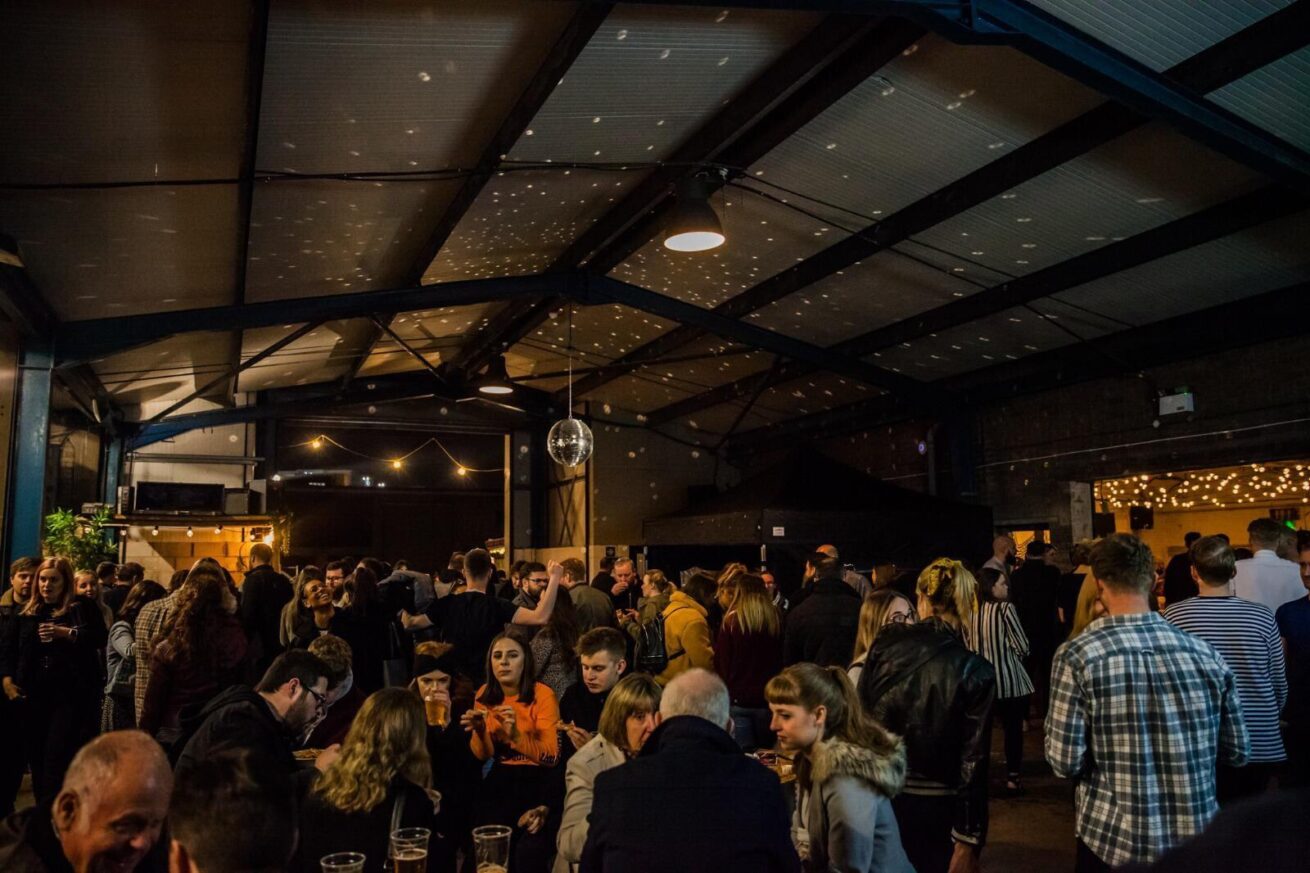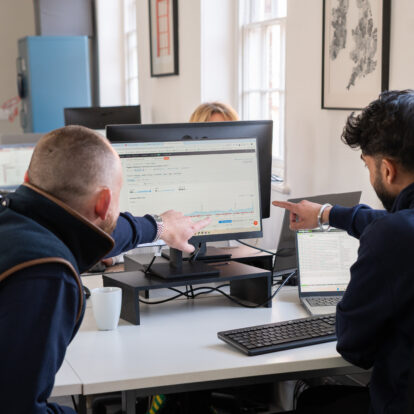Event management for beginners: The ultimate guide
PR
28 Jul 2025

Ioana Batcu
Senior account executive

Gone are the days when event management was seen as just logistics and checklists – because, really, it was never just that. Today, as marketing evolves and consumer expectations soar, event management is less about ticking boxes and more about crafting immersive experiences that captivate, connect and convert.
Our senior account executive, Ioana Batcu, puts it perfectly: event planning is like orchestrating a full-scale production. Think of it as your exclusive backstage pass to designing brand moments that don’t just make noise – they strike a chord. The kind that amplifies your message, brings you eye-to-eye with your audience and transforms resonance into real advocacy.
What is event management?
Think of event management as your ultimate backstage crew, coordinating everything from the opening act to the final encore. Whether it’s a product launch, a roundtable or a networking bash, in-person or virtual, it’s the art of choreographing an experience that captivates – with every detail tailored to your vision and tuned to your audience.
Why is event management important for your business?
We’re not shy about it – at Cartwright, we’re a team of event enthusiasts. Whether you’re looking to captivate consumers or connect with business stakeholders, we know how to make it count. And while we could talk about this all day long, here’s the truth – event management, done right, has the power to position your brand where it belongs: centre stage.
It’s not just about the confetti and canapés – it’s about creating real-world moments that spark connection, earn attention and drive action. We activate across both B2C and B2B, and this is how each plays out.
Attracting consumer crowds
In the consumer world, events are all about exposure, emotion and creating something that everyone wants to be part of – giving your audience something to remember and share.
- Create crowd-pulling moments: whether it’s the buzz of a launch night or the pull of a pop-up, live experiences help you cut through digital noise. Our work with Roxy Ball Room Nottingham delivered just that – a high-energy opening that drew in hundreds of attendees and generated widespread press, social media and influencer coverage, resulting in the VIP area being booked up for months after.
- Fuel brand love that lasts: you’ve heard us talk about brand loyalty plenty already, something B2C events can certainly cement. For Notts Pride 2024, we led media and influencer engagement to amplify a celebration of identity and community, resulting in a vibrant turnout of more than 9000 attendees, along with wide local press coverage that captured enthusiasm long after the final parade.
- Finally, tap into influencer advocacy: events provide natural spaces for creators to capture and share your brand’s story. For the opening of Public and Plants, we activated Nottingham-based influencers whose content reached over 600,000 users, turning a local café into a buzzworthy destination.
Business buy-in
On business brands, events are about credibility, leadership and connection. Place your brand in the right room, with the right people, and the right conversation can fast track your reputation and authority in your respective industry.
- Create face-time that influences: events have the power to generate impact that can live far beyond the day itself by initiating and owning the conversation. A roundtable we hosted for GT3 Architects brought together public sector and industry decision-makers. The outcome? National press coverage, two direct new business wins and relationship-building with key stakeholders.
- Deliver sustained reputation and reach: events can position you as a thought leader and open up serious commercial conversations. Take our work with International Bomber Command Centre (IBCC), where a commemorative event we supported led to widespread national media coverage, helping IBCC reach new audiences, grow its visibility and drive long-term educational engagement.
How to plan for a successful events management campaign
It’s time for yet the most exciting piece of the puzzle – whether it’s B2C or B2B, every great show or event starts with a rock-solid plan.
Planning
Begin by defining your event's one and only mission – is it to drive brand awareness, generate leads, build relationships? From there, draft your budget like a production schedule, securing costs for venue, speakers, audio visual (AV), and décor where appropriate.
Choose a location that fits your event theme/style and audience – that could vary from a sleek boardroom to neon-drenched rooftop, or of course, your own venue if we’re speaking hospitality – and build a timeline that plots every act from initial prep to final wrap.
For bigger activations, get planning well in advance to keep things stress-free.
Logistics
The unsung heroes – from transport and AV to catering, signage and contingency plans, logistics ensure the entire experience runs seamlessly. Think of it like setting the stage before the lights go on.
Marketing and promotion
Before the doors open, you’ll need a packed house. Use a multichannel strategy to drum up buzz:
- Social media for visual teasers and countdowns
- Email marketing for invites and reminders
- Influencer and press partnerships for third-party hype
- Paid ads for targeted reach
Tailor your tone, timing and channels to your audience – B2B might lean on thought leadership content and LinkedIn events, while B2C thrives on Instagram Reels, TikTok teasers and promo offers.
Execution
This is the main act. Keep your team well-briefed, your communication clear and your eyes on the floor. Troubleshoot quietly, adapt quickly and focus on creating an experience that feels seamless to guests.
Have a contingency plan for any last-minute surprises (they happen!).
Post event evaluation
Once the lights are down, gather the metrics. Conduct a full performance review:
- Did you hit your KPIs?
- How did attendees rate the experience?
- What content or format worked best?
- Where can you tighten things up next time?
Use surveys, social listening, analytics and team debriefs to collect insight. Then package your results into a tidy post-event report to share learnings and prove ROI.
Successful event planning skills
Strong communication
Think of communication as your showrunner: the clearer it is, the smoother the production. Whether you're briefing a speaker, confirming timings with a venue or updating your team mid-event, consistent and transparent communication builds trust and ensures the lights stay on (literally).
Time management
Timing is everything – not just on the day, but in the build-up too. Create realistic lead times, manage deadlines and schedule regular check-ins. With competing priorities and potential curveballs, good time management means less drama and more control.
Adaptability
Even the best-planned event can get upstaged by the unexpected: bad weather, tech hiccups, a last-minute speaker cancelation. Your ability to pivot quickly, stay calm and find smart workarounds keeps the audience none the wiser and the event running smoothly.
Get in touch with our PR team
Ready to face the crowd with your next event? Whether you’re planning a headline-grabbing launch or an industry roundtable with real impact, our events and PR experts are here to help you own the spotlight. Get in touch today – and let’s create something worth talking about.


